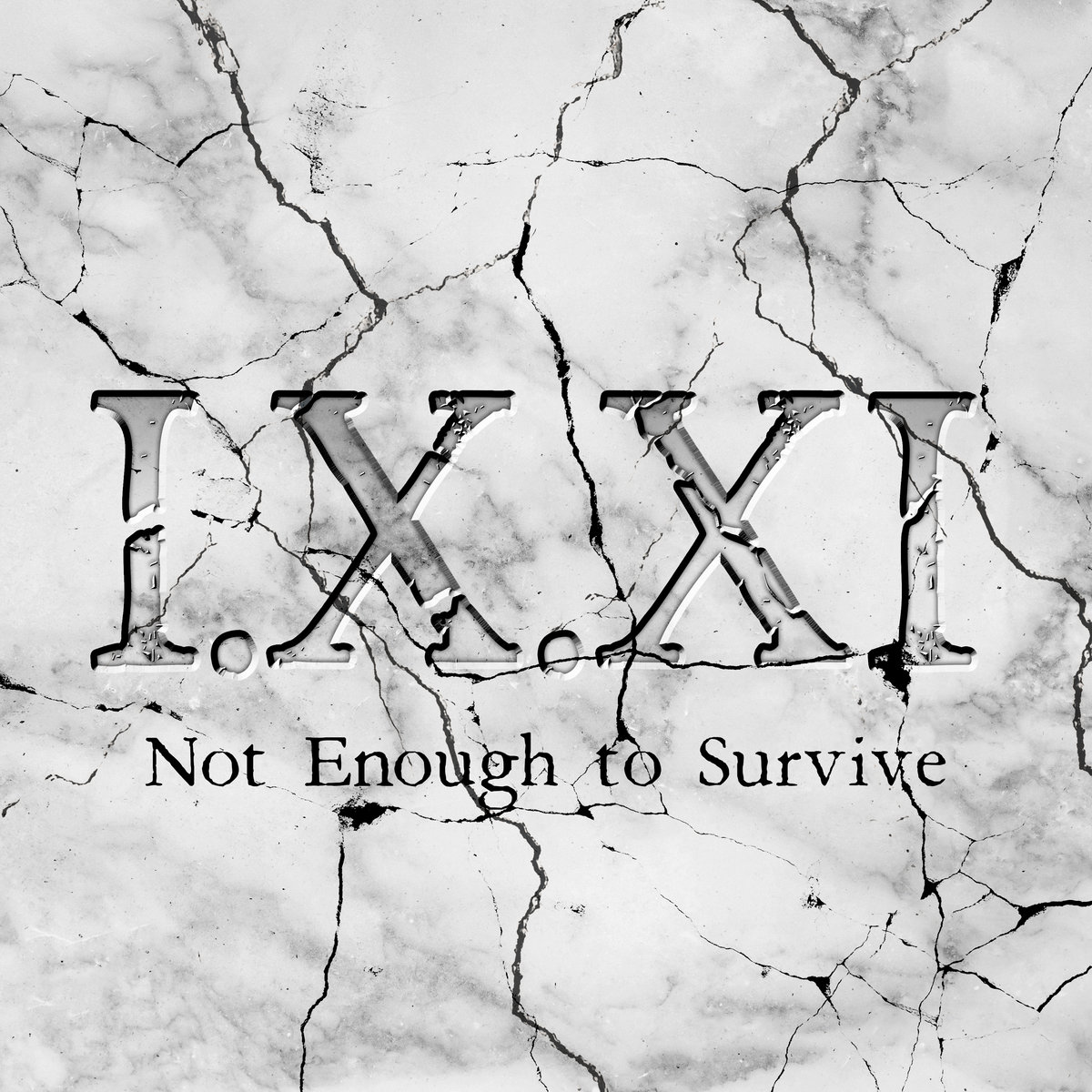
I.X.XI
Not Enough To Survive
self-released
The debut proper of John Freriks’ I.X.XI project might be bookended by some Battlestar Galactica samples and begin with some Die Sektor-styled breaks and vocals, but it soon becomes apparent that Not Enough To Survive‘s handful of motifs and styles from the past twenty or so years of post-industrial club sounds are being used for a very particular effect. That the entirety of the project, from its name on outward, is meant to memorialize Freriks’ deceased sister, frames those sounds in a specific light, but even regardless of origin the variety and execution on display in Not Enough To Survive is impressive.
Grab just about any aggrotech or futurepop record from the mid aughts and you’re likely to find an intro track featuring the sort of elegiac fanfare which begins Not Enough To Survive, but rather than taking those softer orchestral moments to a mere prelude before club bangers, Freriks inverts that formula, with the record’s moments of aggression serving as interstitial moments between its quieter pillars. The slowly unfolding “Deep”, with a plaintive piano reaching out and over a quiet base of pads and percussion, feels far more of a centerpiece in the record as a whole than any of the more abrasive moments which precede or follow it.
In addition to its unlikely album structure, Not Enough To Survive benefits from canny stylistic selection and blending. Linking a NIN-like structure to the more stately and almost chamber-music styled sounds which came out of the post-witch house period, “Gone” is a reminder of how well suited that latter moment and style was to so many listeners’ first points of contact with industrial or goth music (that Brant Showers has production credits on the record is especially instructive with tracks like this). Elsewhere, aggrotech-cum-dark-electro grinds like “Guilt” sit alongside haunted post-rock chamber pieces like “Infinity”, which shifts from an almost “All Cats Are Grey”-like sequence into Mortiis-styled excoriation across its seventeen minutes.
Bringing deeply personal pain and grief to bear on record can have mixed results. For every successful piece which produces a moment of empathy and understanding, there are dozens which fail to communicate what was intended for whatever reason, or are simply so obscure or subtle in their delivery that their significance is occluded by the time they’re heard by outsiders. Regardless of the cathartic or therapeutic ends Freriks might be pursuing with the project, the emotion and strength of the material (not to mention its more unconventional approaches) should register with listeners, whether they know of its origin or not.






This is remarkably well executed. Even on the more electro/aggro forward slices like “Don’t”, its looped, repetitive chorus and thoughtful lyricism turn it into a piercing, probing listen. Highly effective record.